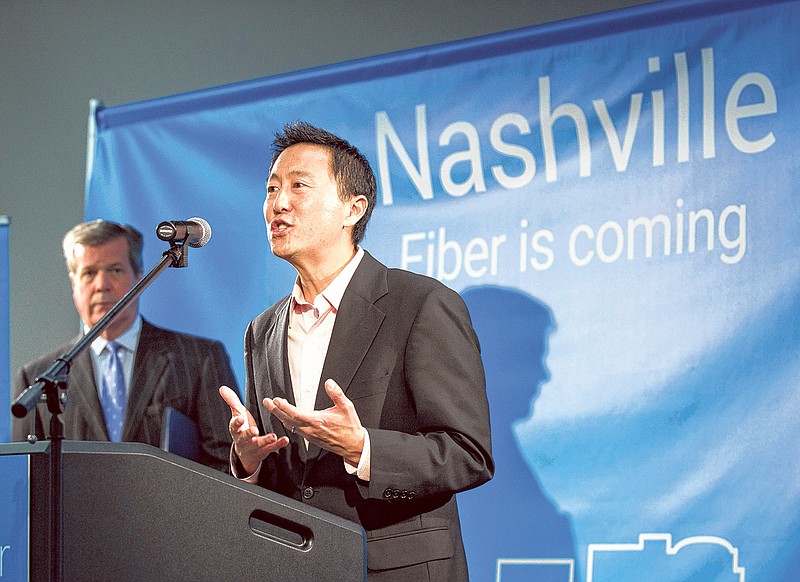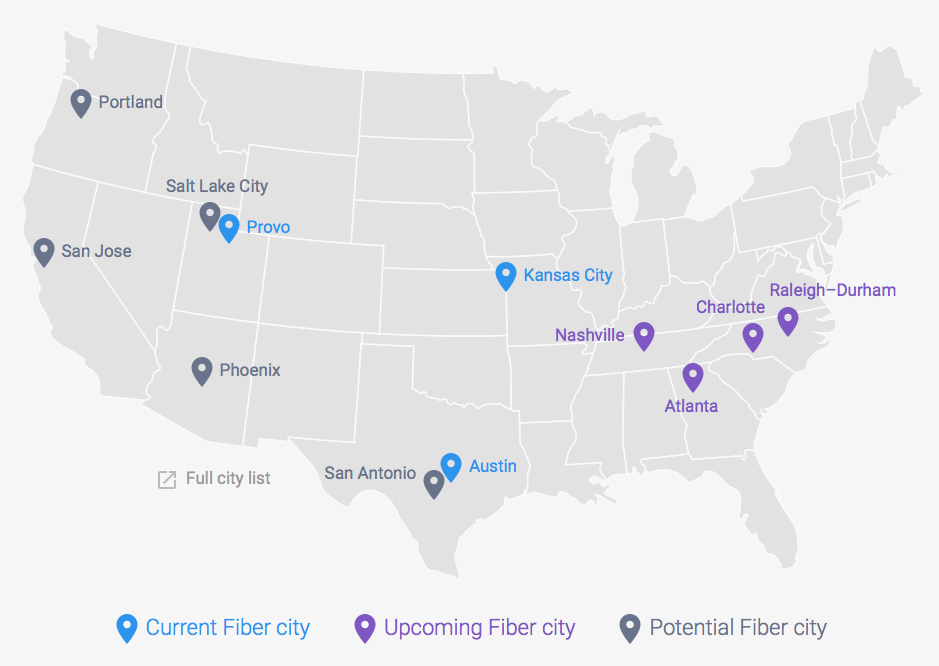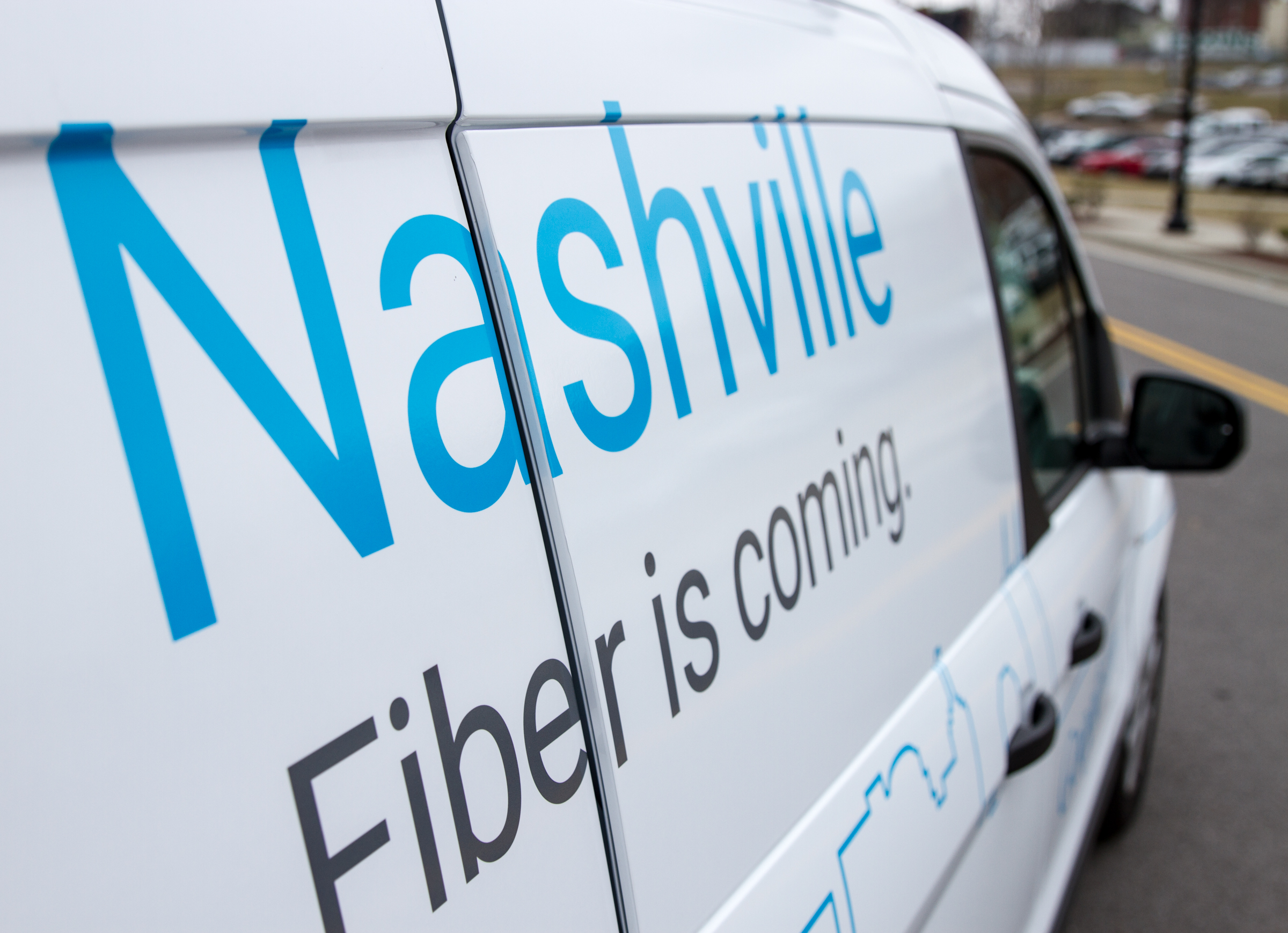Google said Tuesday it has selected four metro areas in the Southeast to receive its fiber-optic service that can deliver Internet speeds at more than 50 times the national broadband average.
The company said it will bring gigabit-speed service to Nashville, Atlanta, and Raleigh-Durham and Charlotte in North Carolina. Google officials said five Western cities previously identified as finalists remain in the running for fiber down the line.
"We had four cities here in the Southeast that were ready to go," said Kevin Lo, Google's general manager for fiber services. "I want to be really clear that this is not 'no' to anybody for the other five metro areas."
The other five cities in the running are Phoenix; Salt Lake City; San Jose, Calif.; Portland, Ore.; and San Antonio.
The high-speed Internet links by Google will match the gigabit-per-second service offered in Chattanooga for the past four years by EPB. Chattanooga was the first city in the Western Hemisphere to offer citywide gig speed.
The Google Fiber rollout can only help Chattanooga, said Ken Hays, Enterprise Center Chattanooga's CEO and president.
"The faster that rollouts occur globally, the better off we're all going to be, because right now we've got an asset that has a limited number of eyeballs," Hays said Tuesday. "For economic health to be generated there needs to be a lot more people that are on this next generation of this Internet."
To be sure, he said, Chattanooga will always be the first to have put Gig-speed service in place. It will be the "poster child" for citywide Gig-speed service, he said.
"In the early times when we were making a name for ourselves, it was good for us to say we were the only, the fastest," Hays said. "What time is telling you is that there needs to be substantially more deployment for the benefits to be seen in a larger perspective."
Google Fiber, like its EPB counterpart, boasts that its service can download an entire movie in less than two minutes and that it has vast potential in business, science and education.
Lo cited the example of a geneticist in Provo, Utah, who can download an entire human genome, or about 200 gigabytes worth of data, via Google Fiber in less than half an hour. That compares with 77 hours at traditional broadband speeds.
"The next chapter of the Internet will be written at gigabit speeds," Lo said.
Launched as an experimental project in 2010, Google Fiber is available in Provo; Kansas City, Missouri; Kansas City, Kansas; and Austin, Texas.
Google is hoping the competition will prod existing Internet service providers such as Comcast, Verizon Communications and AT&T Inc. to upgrade their networks so they can run at faster speeds. Google figures it would still benefit in that scenario if the improvements to rival networks spur more Web surfing.
Prices for Google Fiber are comparable to or below what most households already pay. For example, in the two Kansas City markets, Google Fiber charges about $70 per month for just high-speed Internet service, or $120 for an Internet and TV package.
Lo declined to say when the service would be available to customers in the new cities, but officials in Charlotte said they hope the work to be complete within the next two years.
President Barack Obama earlier this month urged greater access to faster Internet speeds as a way to create jobs and make local businesses more competitive in the global economy.
The president is calling for a repeal of restrictions on local communities creating their own broadband networks, a stance at odds with major cable and telephone companies that often provide Internet service with little competition.
Obama has also angered the industry by calling for new Federal Communications Commission rules that treat Internet service providers as public utilities.


